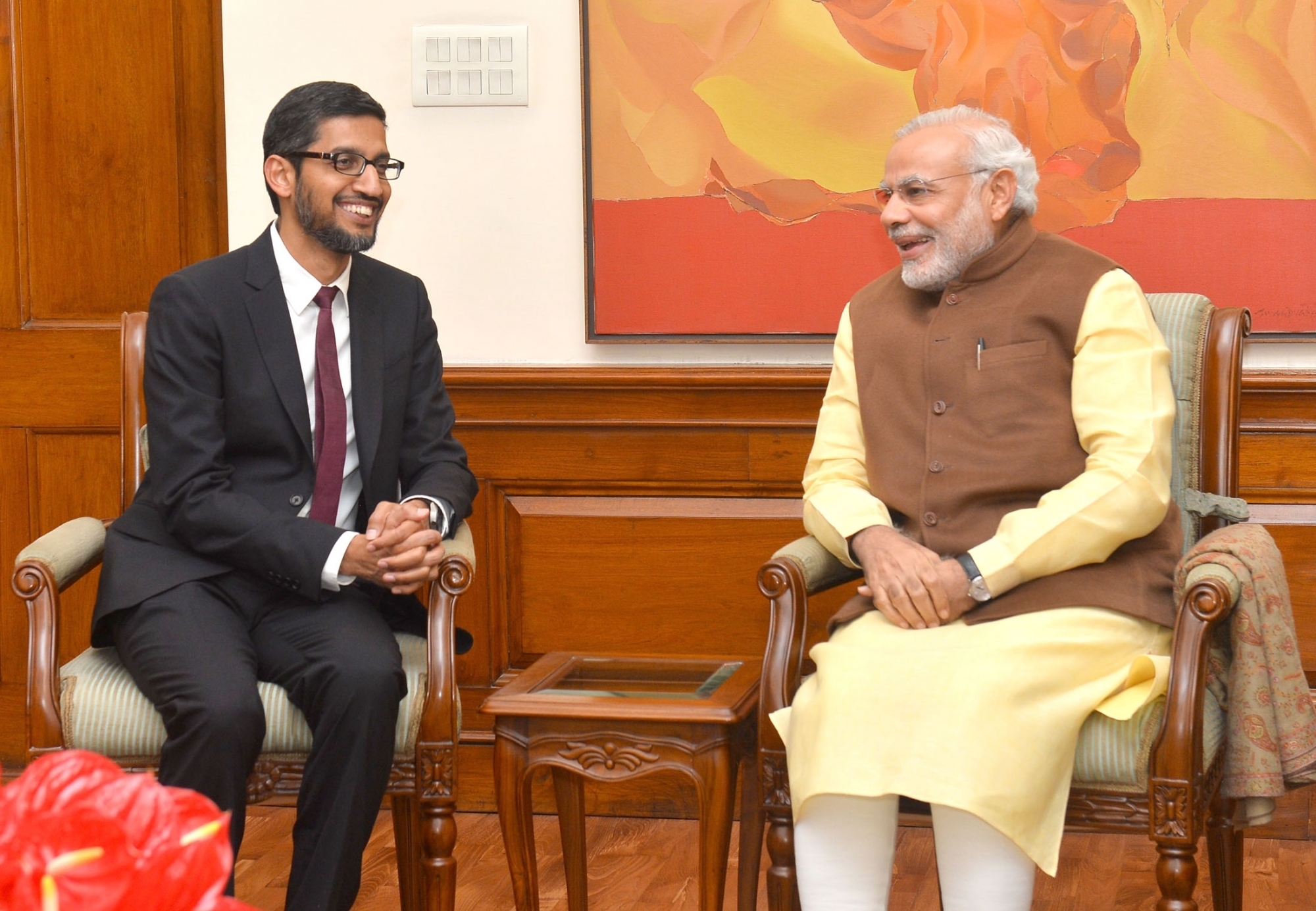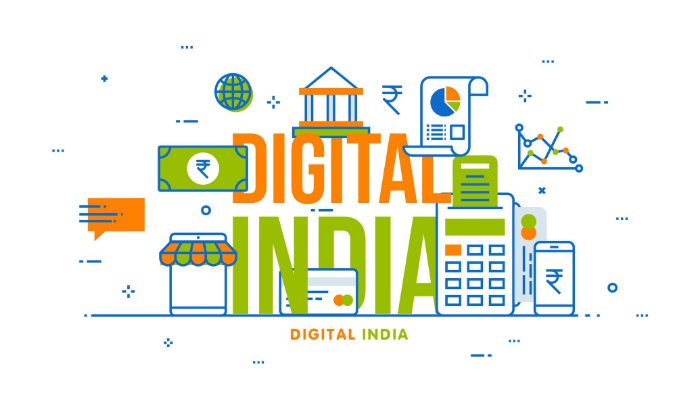Sundar Pichai meets PM Modi, says ‘His vision for Digital India was ahead of his time’

Sundar Pichai meets PM Modi, says ‘His vision for Digital India was ahead of his time’:
During his visit to the United States, Prime Minister Narendra Modi had a significant meeting with Sundar Pichai, the CEO of Google and its parent company Alphabet. This meeting aimed to explore potential avenues of collaboration between the Indian government and Google in various sectors, such as artificial intelligence (AI), fintech, cybersecurity, and mobile device manufacturing in India.
Prime Minister Modi extended a warm invitation to Sundar Pichai to further explore opportunities for collaboration in these areas. Recognizing the transformative power of technology, Modi emphasized the importance of leveraging AI, fintech, and cybersecurity to drive India’s growth and development. Additionally, he highlighted the potential for expanding mobile device manufacturing in India, aligning with the government’s “Make in India” initiative.

Sundar Pichai, in response, expressed his admiration for Prime Minister Modi’s vision for Digital India. He commended the government’s efforts in spearheading digital transformation in the country, acknowledging that Modi’s invention was ahead of its time. Pichai recognized the immense potential in collaborating with India, a country known for its talent pool and growing market, and expressed Google’s willingness to explore further partnership opportunities.
The meeting between Prime Minister Modi and Sundar Pichai signifies the growing significance of technology in driving economic progress and social development. Both leaders recognized the need to harness the power of AI, fintech, and cybersecurity to address the evolving needs of the Indian population and foster inclusive growth.
In the field of AI, India has witnessed significant advancements in recent years, and Prime Minister Modi’s government has been actively promoting AI-driven solutions across various sectors. Collaborating with Google, a global leader in AI research and development, can further enhance India’s capabilities in this field. It can lead to the development of innovative solutions that address societal challenges and create new avenues for economic growth.
Fintech, another area of collaboration, has been revolutionizing the financial services industry globally. India, with its vast unbanked population, has embraced fintech as a means to provide accessible and affordable financial services to its citizens. By joining forces with Google, India can leverage its technological expertise to further strengthen its fintech ecosystem and drive financial inclusion.
The discussion on cybersecurity is of utmost importance in today’s digital age. As India’s digital footprint expands rapidly, ensuring the security and privacy of data has become crucial. Collaborating with Google, a company at the forefront of cybersecurity advancements, can help India enhance its cybersecurity infrastructure, protect critical digital assets, and mitigate cyber threats.
Furthermore, the invitation to explore opportunities in mobile device manufacturing aligns with India’s objective of becoming a global hub for electronics manufacturing. With a large consumer base and a favourable investment environment, India offers immense potential for companies like Google to establish manufacturing facilities and cater to the growing demand for mobile devices. This collaboration can drive job creation, skill development, and technological advancements in the country.
While specific details of the discussions and potential agreements were not provided, the meeting between Prime Minister Modi and Sundar Pichai set the stage for future collaborations between the Indian government and Google/Alphabet. It demonstrates the shared commitment to harness technology for the benefit of Indian citizens and the potential for India to emerge as a global leader in the digital economy.
As the world progresses in the digital era, partnerships between governments and technology companies become increasingly crucial. The meeting between Prime Minister Modi and Sundar Pichai signifies the recognition of this need and the willingness of both parties to collaborate and drive positive change. It reflects the determination to leverage technology as a catalyst for inclusive growth, innovation, and transformation in India.

Pichai’s acknowledgement of Modi’s vision not only reflects the progress made in India’s digital journey but also emphasizes the potential and impact of these initiatives on a global scale. India’s efforts in digital innovation, such as the Aadhaar biometric identification system, Unified Payments Interface (UPI), and the BharatNet project, have gained international recognition for their transformative impact on governance, financial inclusion, and connectivity.
The recognition from a prominent global technology leader like Pichai underscores the importance of India’s digital initiatives and the country’s potential as a digital powerhouse. It also highlights the need for collaboration between governments and technology companies to harness the benefits of technology for social and economic development.
The meeting between Modi and Pichai not only discussed potential areas of collaboration in AI, fintech, cybersecurity, and mobile device manufacturing but also served as a platform to acknowledge the progress made by India in the digital domain. The praise from Pichai further strengthens the resolve of the Indian government to continue driving digital initiatives and leveraging technology for the betterment of its citizens.
Overall, the recognition and appreciation of Modi’s vision for Digital India by Sundar Pichai highlight the global significance of India’s digital transformation efforts. It showcases the country’s potential to lead the way in digital innovation and sets the stage for future collaborations between India and global technology leaders like Google. With continued efforts and collaborations, India is poised to make further strides in its digital journey, contributing to the country’s growth and positioning it as a global leader in the digital economy.




